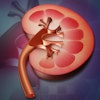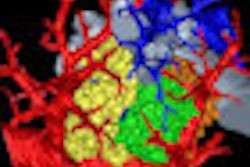Tuesday, November 27 | 10:50 a.m.-11:00 a.m. | SSG08-03 | Room S102D
Carefully performed studies suggest that the incidence and severity of contrast-induced nephropathy (CIN) after IV contrast injection for CT studies has been overestimated, according to researchers from the Mayo Clinic in Rochester, MN, who examined the incidence and severity of CIN in a meta-analysis."Although current medical dogma suggests that iodinated contrast material is universally nephrotoxic, the clinical evidence to support this apparent causal relationship is not as robust as is often assumed," Jennifer McDonald, PhD, told AuntMinnie.com. "In fact, the vast majority of clinical studies on CIN failed to include the critical control group of individuals who did not receive contrast."
In the absence of such a control group, it is impossible to extricate the incidence of contrast-independent causes of transient renal injury from CIN, McDonald believes. Such studies may therefore be grossly overestimating the incidence of CIN.
The group looked at 14 studies (0.9%) representing 184,205 patients. Contrast administration was associated with a reduced incidence of acute kidney injury and an unchanged risk of death and dialysis, according to the researchers.
"These results suggest either that CIN from IV contrast is a diagnosis of misattribution, or that the incidence is so low as to be obscured by other causes of contrast-independent renal injury," McDonald concluded.




















